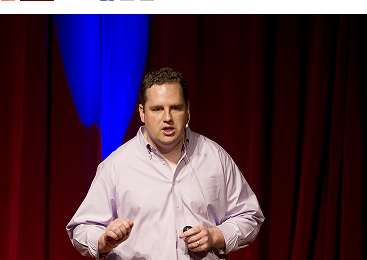TEDxISU: Behind the Scenes with Brian Weeden
By Drew Lacy, Communication ’14
As members of mankind have ventured outside our atmosphere into the cosmic beyond, we’ve left behind a little more than a few footprints and a flag on the moon.
In fact, we’ve left over 10,000 pieces of trackable space debris hurtling around the planet since we first started sending equipment to space decades ago. As different programs and agencies around the world launch rockets, satellites, and other technology into the space above our heads, the area just beyond our atmosphere is becoming more and more crowded with space junk.
It’s like a game of really, really expensive Minesweeper, and if you put your satellite in the wrong box, well…let’s hope it only cost a few million dollars to build.
It’s this dilemma that Brian Weeden, technical adviser for the Secure World Foundation, spoke about at TEDxISU last month. He made the point that there is a growing need for space situational awareness, or the ability to see and react to what is floating around out there that could impact technology and even people in space.
But it isn’t that there’s a shortage of data on space debris. Instead, there’s a shortage of analysts and of communication between people and organizations that need this info.
That’s where open source software comes in, a topic we asked Brian about in our TEDxISU behind-the-scenes interview:
After years of “space races” and closely guarded secrets, open source software is becoming the way of the future. Instead of forcing everyone to take the same measurements, mine for the same data, and create the same programs on their own, open source software and information can allow for more innovation without spending millions of dollars on research ten other companies have already conducted.
That’s good news for Florida Tech students. With a little help from some open source software, space exploration is closer than ever for aspiring astronauts and space researchers.





